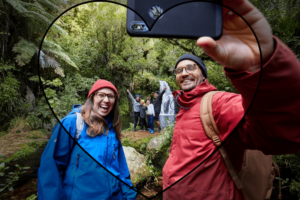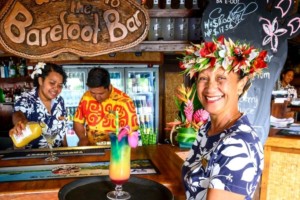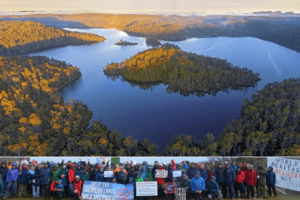What do the people want? Reimagining Pacific Island travel & tourism
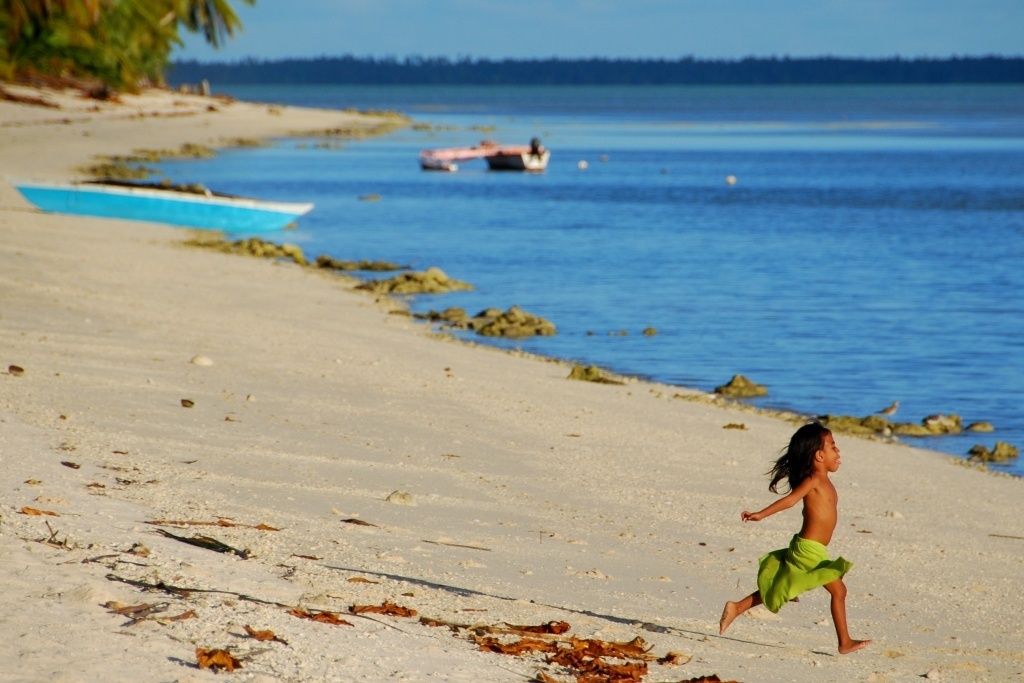
Thanks to its pandemic-induced pause, travel & tourism has an opportunity to reinvent itself to better serve the aspirations of destination communities, according to Apisalome Movono, Regina Scheyvens, and Sophie Auckram. The Massey University researchers draw on their ongoing study of five Pacific Island states to argue why the industry should be more attuned to hosts’ interests. It’s a “Good Tourism” Insight.
[Thanks to Joseph M Cheer for inviting the authors to write a “GT” Insight.]
A lot of the small island developing states in the Pacific — like those in the Caribbean, and Atlantic and Indian Oceans — are heavily reliant on tourism as it contributes to a significant amount of their GDP. The Cook Islands, for example, generates 85% of its GDP from tourism, and in Vanuatu, tourism accounts for one in every three jobs. Fiji alone has to date lost USD 2 billion in GDP due to the COVID-19 pandemic, causing a huge dent in the budget of a country of less than 1 million people.
Major shocks like cyclones regularly disrupt tourism, but COVID-19 has completely stopped international tourism in much of the Pacific. While island resorts in some parts of the world re-opened early to tourists, with governments gambling on balancing health and economic risks, tourism-dependent Pacific states such as Samoa and Cook Islands have kept their borders closed. More travel ‘lanes’ or ‘corridors’ have been opening in Fiji and Vanuatu, allowing a trickle of international visitors.
Many Pacific peoples have thus faced huge financial losses due to COVID-19, especially those working in the tourism industry. Often, this income supports these individuals as well as several family members.
Also see Angelo Sciacca’s “GT” Insight
“From linear to circular: How to build resilience in small island destinations”
It is impressive that, given these challenging times, some employers have bent over backwards to accommodate employees, treating them like family. This has been particularly valuable where there has been an absence of wage subsidies for workers, such as in Fiji, Samoa, and Vanuatu. Some businesses, like Sinalei Resort in Samoa, tried to stay open to support their employees. They have since been forced to close.
While speculation abounds about the revival of the tourism industry, it is clear that when tourism is back on its feet there will be huge demand for travel.
Time for the tourism industry to have a rethink
The time is thus right for industry players to think about not just what tourists will want, but what host communities are seeking. Yes, many want jobs in the tourism sector, and the opportunity to run their own tourism enterprises. However, our research into how those living in destination communities are coping has found that they also have other aspirations for the future of tourism.
Importantly, 38% of people we surveyed were unsure about staying in tourism and would prefer to find jobs in other areas. The “old” tourism model is seen by some as compromising their well-being. Working long hours while commuting daily from a village to a hotel, or spending six weeks away from home at an island resort before getting one week off, is not ideal for parents of young children or those engaged in community work.
Also see Eva Mossberg’s “GT” Insight
“Host communities are at the core of tomorrow’s sustainable tourism”
Many people interviewed for our research said they valued the break from international tourists in one way because they had more time to spend with family, they could support neighbours who were struggling, and there was also time to attend to their spiritual lives by attending church services. To survive, many had returned to the land and the oceans to grow or source food, and some had also started small trading businesses of their own. Some people have found such activities to be less stressful than working in tourism sector, as well as being a more reliable way of sustaining their livelihoods..
One woman, a former resort employee in Fiji, expressed this well:
“This break has given us a new breath of life. We have since analysed and pondered on what are the most important things in life apart from money. We have strengthened our relationships with friends and family, worked together, laughed and enjoyed each other’s company. We have strengthened our spiritual life and have never felt better after moving back to the village.”
What do people want from future tourism?
Most tourism employees want tourism to return, but they hope for better wages, more job security (or access to insurance to get them through the tough times), and better working conditions. While a few called for caps on numbers in heavily touristed areas, others urged governments to promote off-season tourism and open up new locations to avoid crowding and spread the economic benefits more widely.
People would also like to see greater local ownership and control of tourism enterprises, including joint ventures, building on existing strengths such as cultural or tropical garden tours and agri-tourism.
Flexible hours and part-time work were desired by a group of people who would like to earn some cash income while also being able to continue to engage in community development work, have more time to devote to family, or engage in the fishing and agriculture activities — both for subsistence and for sale — that they started during lockdowns.
Also see Paul Rogers’ “GT” Insight
“Why build well-being into destination resilience and tourism recovery?”
Many said they would like more opportunities for training as part of their tourism sector work, especially in terms of developing IT, business, or technical skills that could be directed to work outside of the tourism sector in case of future shocks.
Overall, the message seems to be that the interruption caused by the pandemic has given Pacific peoples in tourism destinations time to rethink their priorities. They are seeking a better work-life balance and enhanced well-being. As one Fijian elder put it: “Tourism must complement our way of life, rather than taking over.”
If industry players are aware of what hosts communities want they will be in a better position to plan for more responsible, sustainable tourism in future; and ensure a satisfied workforce with genuine smiles to meet their guests.
What do you think? Share a short anecdote or comment below. Or write a deeper “GT” Insight. The “Good Tourism” Blog welcomes diversity of opinion and perspective about travel & tourism because travel & tourism is everyone’s business.
Featured image (top of post): Kiribati kid. Image © Pedram Pirnia; supplied by authors.
About the authors
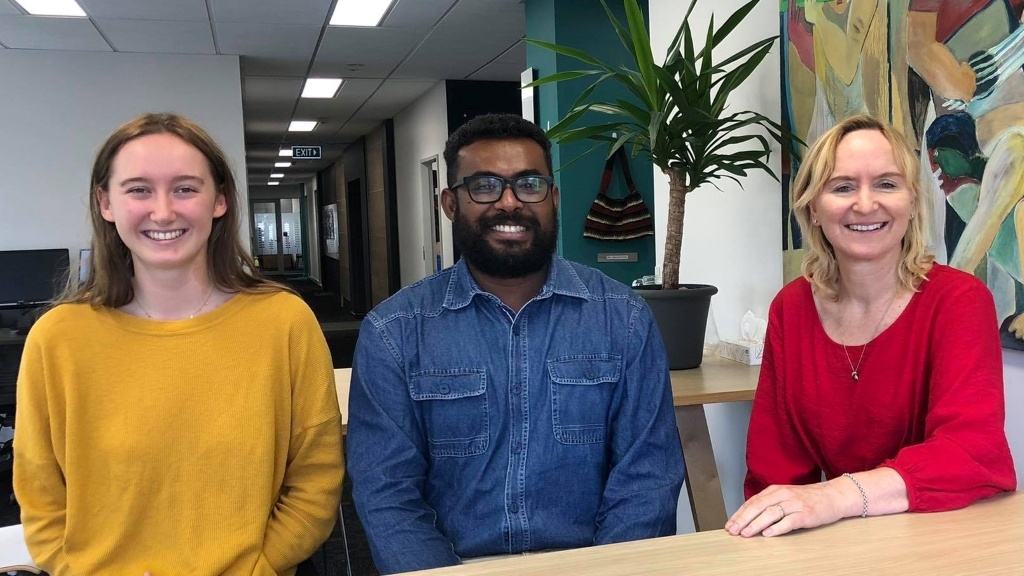
Api Movono is a senior lecturer at Massey University where he continues his passion for the Pacific through research and promoting development that is fair, resilient, and sustainable for future generations”. His work seeks to create a more accurate understanding of Pacific Island peoples and to find solutions and long-term strategies for the many challenges Pacific Islanders face. For his latest research, see Reimagining South Pacific Tourism post-pandemic.
Regina Scheyvens is Professor of Development Studies at Massey University, where she combines a passion for teaching about international development with research on tourism and sustainable development. She has published on themes such as backpacker tourism, ecotourism, empowerment, and the SDGs and tourism. Her most recent research examines the impacts of COVID-19 border closures on tourism-dependent communities in the Pacific Islands in Reimagining South Pacific Tourism post-pandemic.
Sophie Auckram is a research assistant at Massey University supporting research into COVID-19, Indigenous peoples, and tourism. She graduated from Victoria University of Wellington in International Relations and Political Science and is planning to do a Master’s in Environmental Governance.


